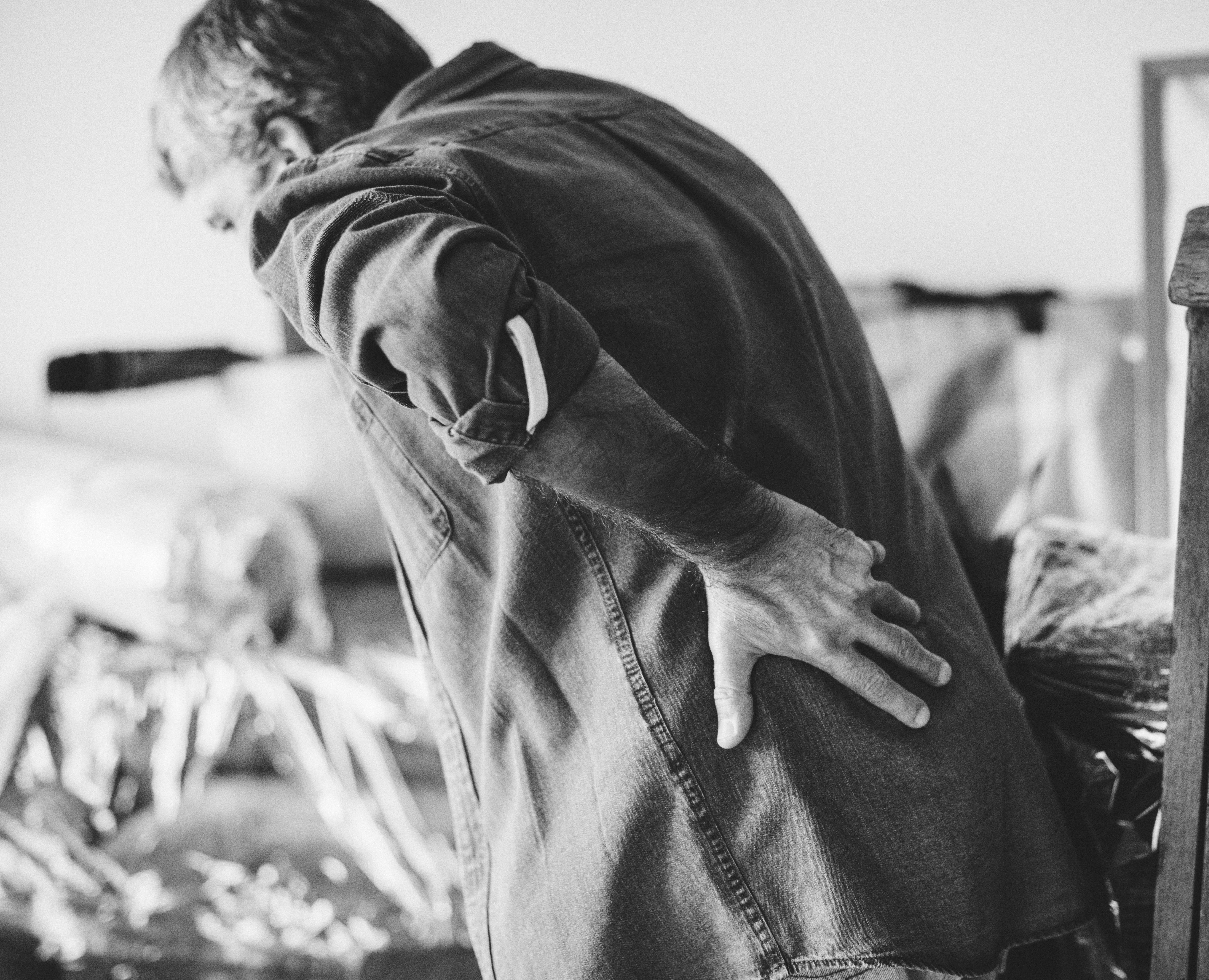
What is body stress?
Body stress occurs when the body fails to adapt to an overload of stress and tension becomes stored in physical structures. The causes may be mechanical, mental/emotional or chemical factors.
Case history
A forty-eight year old man was experiencing such intense calf pain that he was unable to walk. He was not aware of any pain in his lower back. A week of traction in hospital had not eased the problem. After the first BSR session the lower back became very painful as feeling was restored to numbed nerves. The calf pain was unchanged. After the second session, three days later, the pain withdrew from the calves ans was felt in the hips and lower back. After further releases, the pain in the lower back began to lessen. Within two weeks the client was pain-free and was able to return to work.
Self help to reduce stress in the lower back
- When bending down, bend your knees rather than bending at the waist.
- When lifting, use your thigh muscles to take the strain. Hold the object close to your body and avoid twisting.
- When sitting, ensure that your lumbar curve is maintained. Make sure your knees are level with or lower than your hips. Do not sit with your feet up or recline in the bath for extended periods.
- Avoid exercises that reverse or strain your lower back’s natural lumbar curve. E.g. toe-touching, sit-ups and double leg-raisers.
- Take a few minutes every morning to do the exercise your BSR practitioner recommends, in order to strengthen the lower back and abdominal muscles.
- Your mattress should not be too hard nor too soft. It should support the natural hollow of the lower back.
The effects of body stress
Irritation to the spinal nerves of the lower back may result in back pain. This pain may be referred along the nerve pathways into the abdomen, groin, hips, legs or feet. Often pain is felt along the large sciatic nerve which passes through the buttock and down the back of the leg. There may also be sensations of numbness in any of the other areas. Muscle function may be affected, resulting in stiffness or weakness. The compression effect in the lower back may be so severe, that the muscles lock up in a protective spasm, pulling the spine sideways or forwards.
While body stress remains store in the lower back, the irritation to the nerves may undermine or disturb the normal functioning of the areas and organs they supply. Thus, body stress may lead to digestive problems, e.g. constipation or diarrhoea and bladder complaints, and may adversely affect sexual function.
Sometimes a person may not be aware of the body stress in the lower back, other than feeling stiffness when getting up in the morning. After BSR, a person may be pain-free for a period, then experience a return of the problem for no apparent reason. This signals that the lower back is ready for further deeper releases of body stress. The body will only let the BSR practitioner work with areas that it is ready to release.
If the body stress has been present in the lower back for a long time (the cause may have originated in childhood), it may be necessary for the stored tension to be released in ‘layers’ over a period of time.
As the foundation of the spine, the lower back area affects the stability of the spine. So, if body stress is stored in the the lumbar area, muscular tension may be referred to the upper back and neck, resulting in tension or pain in these areas.

